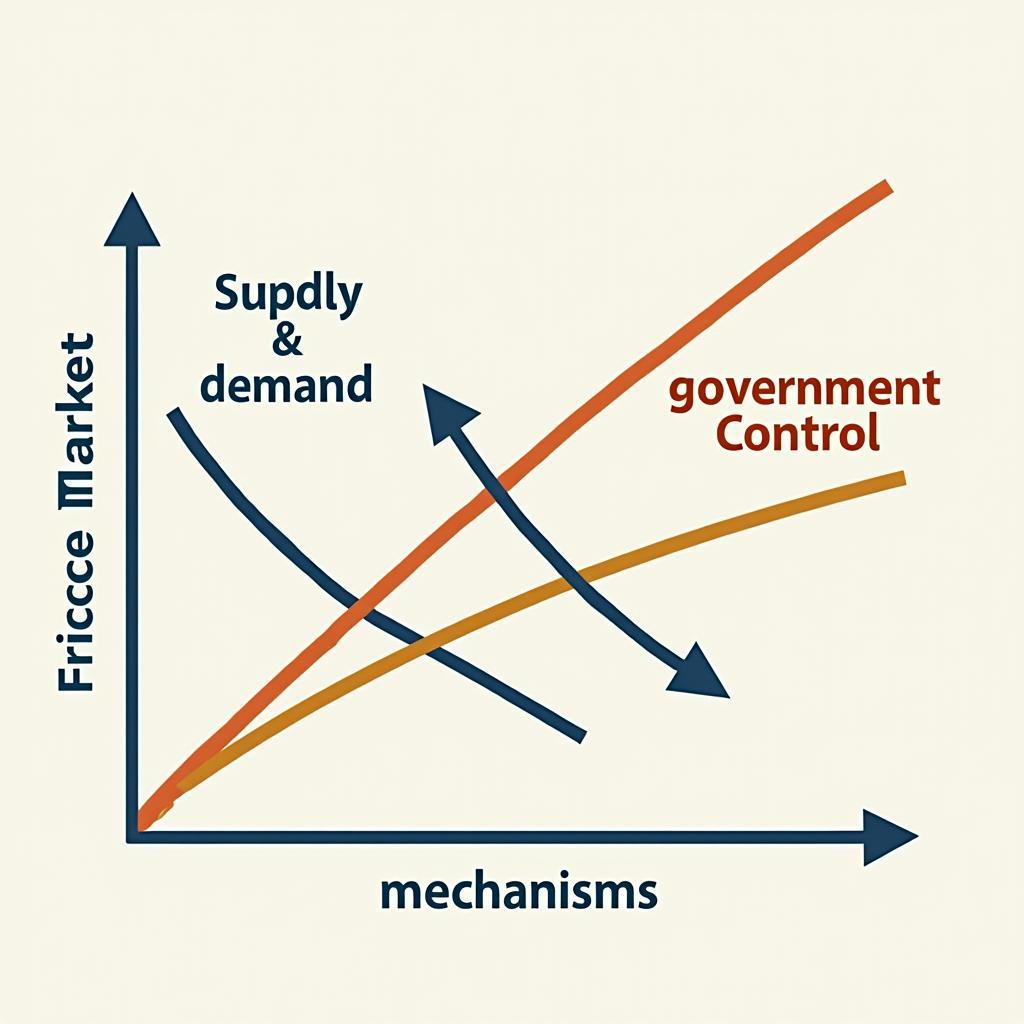Trade policies and market dynamics have consistently appeared in IELTS Writing Task 2 questions over the past decade, particularly in questions about government intervention, economic development, and international commerce. Based on analysis of recent exam patterns, this topic appears in approximately 15-20% of tests, making it crucial for IELTS candidates to master.
How government policies influence market dynamics demonstrates the importance of understanding these complex relationships when preparing for the IELTS exam.
Sample Question Analysis
Some people believe that governments should let the free market determine prices of goods and services, while others think governments should control prices to protect consumers. Discuss both views and give your opinion.
This question tests candidates’ ability to:
- Analyze different economic perspectives
- Evaluate government intervention in markets
- Present balanced arguments
- Provide relevant examples
- Draw reasoned conclusions

Band 8-9 Sample Essay
Government intervention in price determination has long been debated among economists and policymakers. While some advocate for pure market forces to dictate prices, others support regulatory measures. This essay will examine both perspectives before presenting my view.
Those supporting free market pricing argue that it leads to optimal resource allocation and economic efficiency. When prices are determined by supply and demand, businesses respond naturally to market signals, producing goods and services that consumers truly value. For example, how international trade affects developing economies shows that countries with minimal price controls often experience more robust economic growth and innovation.
Conversely, proponents of government price control emphasize consumer protection and social welfare. They contend that unrestricted markets can lead to exploitation, particularly affecting vulnerable populations. Essential goods like medications and basic foodstuffs, if left entirely to market forces, might become unaffordable for many citizens. This perspective is particularly relevant when considering effect of economic recession on job markets.
In my opinion, a balanced approach combining market freedom with strategic government oversight is most effective. While market forces should generally determine prices, government intervention may be necessary for essential goods and services or during economic crises. This hybrid system can protect consumers while maintaining economic efficiency.
Band 6-7 Sample Essay
The question of whether governments should control prices or let the market decide is important in today’s economy. There are good points on both sides of this argument.
People who support free market pricing say it is better for the economy. When businesses can set their own prices, they can make more profit and grow bigger. This helps create jobs and makes the economy stronger. Also, when prices are set by supply and demand, companies make what people want to buy.
On the other hand, some people think the government should control prices. They worry that big companies will charge too much money if nobody stops them. Poor people might not be able to buy important things like food and medicine. The government can make sure prices stay fair for everyone.
I think both sides have good points, but some government control is needed. While most prices can be set by the market, basic necessities should have some price limits. This way, everyone can afford what they need to live, but businesses can still make money.
Key Vocabulary
- intervention (n) /ˌɪntəˈvenʃən/ – the action of becoming involved in something
- optimal (adj) /ˈɒptɪməl/ – best or most favorable
- exploitation (n) /ˌeksplɔɪˈteɪʃən/ – the action of treating someone unfairly for one’s own benefit
- vulnerable (adj) /ˈvʌlnərəbl/ – exposed to harm
- strategic (adj) /strəˈtiːdʒɪk/ – carefully planned to achieve a specific goal
Tips for Similar Topics
Practice writing essays on related topics such as:
- Economic globalization effects
- International trade regulations
- Market competition policies
- Consumer protection measures
Remember to structure your response clearly, use relevant examples, and maintain a balanced perspective while expressing your opinion.